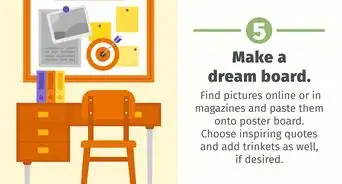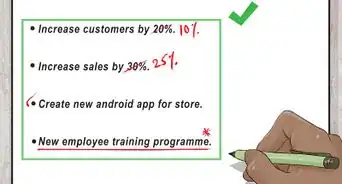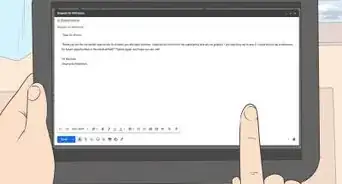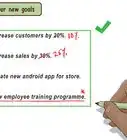This article was co-authored by Sharon Lee and by wikiHow staff writer, Madeleine Flamiano. Sharon Lee is a Success Strategist and the Owner of Fearless Pursuits. With over seven years of experience, she specializes in helping others gain clarity on their goals, build confidence, and remain accountable towards their goals. Sharon offers advice to others through life coaching, career coaching, and small business coaching. Sharon holds a Strategic Intervention Coach Certification from Robbins-Madanes Training and has additional training from Erickson Coaching International.
There are 13 references cited in this article, which can be found at the bottom of the page.
This article has been viewed 8,613 times.
Want a job that feels like a passion instead of just work? While that might sound like a fantasy, a career that's a perfect match for you is actually well within reach. All you have to do is get in touch with your strengths and reach out for guidance. We'll walk you through the process of self-reflection and networking so you land the position that's right for you. So, if you're ready for a career that really pays off, invest in yourself and read this handy guide on finding a field you'll thrive in.
Things You Should Know
- List your passions and what you spend hours on to identify an ideal career.
- Take popular career quizzes to get ideas for jobs that are a great fit for your personality.
- Network with professionals inside and outside the industry you want to work in to expand your horizons and look for a mentor who can give you expert advice.
- Manage your personal brand to drive employers to seek you out. For example, write articles on LinkedIn and post content, like concept art, on Instagram.
Steps
Expert Q&A
-
QuestionHow can you find a good job if you're disabled?
 Amber Rosenberg, PCCAmber Rosenberg is a Professional Life Coach, Career Coach, and Executive Coach based in the San Francisco Bay Area. As the owner of Pacific Life Coach, she has 20+ years of coaching experience and a background in corporations, tech companies, and nonprofits. Amber trained with the Coaches Training Institute and is a member of the International Coaching Federation (ICF).
Amber Rosenberg, PCCAmber Rosenberg is a Professional Life Coach, Career Coach, and Executive Coach based in the San Francisco Bay Area. As the owner of Pacific Life Coach, she has 20+ years of coaching experience and a background in corporations, tech companies, and nonprofits. Amber trained with the Coaches Training Institute and is a member of the International Coaching Federation (ICF).
Pacific Life Coach Your local Department of Vocational Rehabilitation (VR) office can provide some job services and supports to help you find a good job, such as uniforms, training, and transportation. VR can also help you find employment. If you have an intellectual or developmental disability (IDD), you can contact your local IDD agency. These agencies may provide some form of customized employment or supported employment.
Your local Department of Vocational Rehabilitation (VR) office can provide some job services and supports to help you find a good job, such as uniforms, training, and transportation. VR can also help you find employment. If you have an intellectual or developmental disability (IDD), you can contact your local IDD agency. These agencies may provide some form of customized employment or supported employment.
References
- ↑ https://www.monster.com/career-advice/article/finding-your-passion-new-job-0217
- ↑ https://www.frontiersin.org/articles/10.3389/fpsyg.2021.645498/full
- ↑ https://www.jobbank.gc.ca/career-planning/quizzes
- ↑ https://www.indeed.com/career-advice/finding-a-job/what-am-i-good-at
- ↑ https://hbr.org/2020/11/how-to-find-out-if-a-companys-culture-is-right-for-you
- ↑ https://www.indeed.com/career-advice/interviewing/perfect-day-interview-question
- ↑ http://www.longwood.edu/career/articles/2020/6-ways-to-research-a-company-before-applying/
- ↑ https://career.berkeley.edu/Info/InfoInterview
- ↑ https://www.betterhelp.com/advice/careers/how-can-career-counseling-help-me/
- ↑ https://www.npr.org/2019/10/25/773158390/how-to-find-a-mentor-and-make-it-work
- ↑ https://www.northeastern.edu/graduate/blog/networking-tips/
- ↑ https://www.northeastern.edu/graduate/blog/tips-for-building-your-personal-brand/
- ↑ https://www.wgu.edu/blog/6-reasons-continuing-education-important1904.html






































































